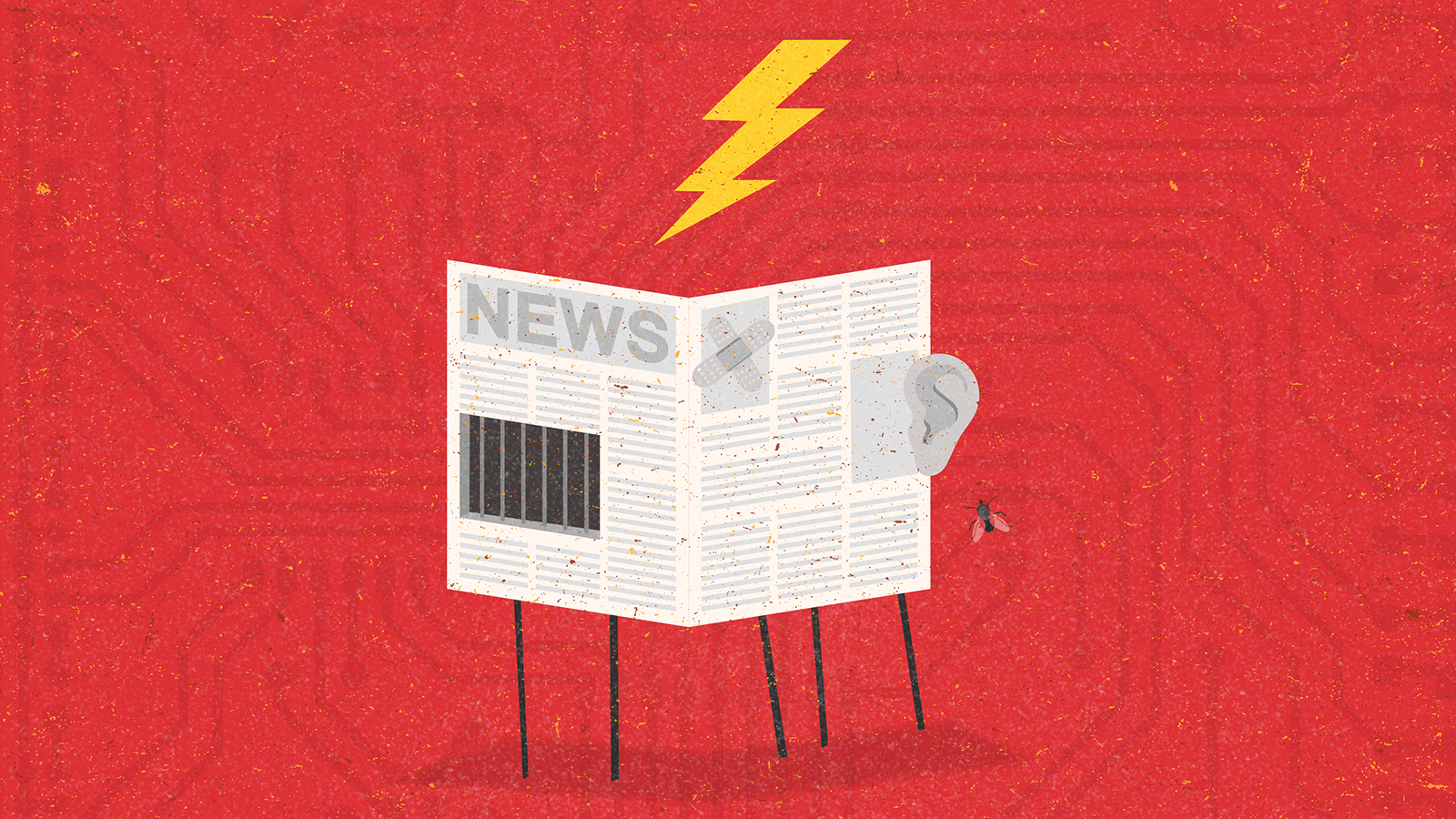The media in Serbia misinformed about the reasons that led to the failure to reach an agreement on license plates in the last meeting in Brussels between the Prime Minister of Kosovo Albin Kurti and the President of Serbia Aleksandar Vucic. “Novosti” has written that Kurti deliberately failed the agreement to occupy the north with police forces.
"He broke the agreement in BRUSSELS AND PROVOKE IT IMMEDIATELY: Kurti sent 40 police vehicles to the north", is the headline of "Novosti". Referring to non-official sources, this medium has written that a convoy of about 40 Kosovo Police vehicles was observed from the direction of Bajgora, going down to Srbovac and moving towards Leposaviq. There it is claimed that ministers Sveçla and Mehaj have arrived at the Belvedere base in South Mitrovica - "with the aim of using violence against the Serbs".
However, the news is not based on official information, nor has the Kosovo Police issued any notification for the landing of 40 cars in the direction of Leposaviq.
This claim was denied by the President's chief of staff, Blerim Vela, on Twitter, where he posted a photo of Minister Sveçla with the Speaker of the Assembly Konjufca and President Osmani in Belvedere.
"Don't fall for their disinformation and propaganda. The institutions of #Kosovo are committed to maintaining a peaceful and safe environment for everyone," wrote Vela, referring to the pro-government tabloids in Serbia.
"Informer" also published a news story on November 22, where they interpreted the failure of the license plate agreement as: "The Prime Minister of the temporary institutions in Pristina, Albin Kurti, is trying to provoke war in the Balkans!"

There were such misinforming interpretations in Serbia even before the meetings in Brussels and before the start of the implementation of the decision of the Government of Kosovo on illegal license plates.
More than a decade has passed and the problem of vehicle registration and the use of legal license plates in the territory of Kosovo still remains an open issue. In this direction, the Government of Kosovo during this summer made several decisions regarding the implementation of the 2011 agreement. At the request of international partners, the decision to implement this agreement was postponed for several weeks. After the expiration of this deadline, the USA and the EU asked the government to postpone the implementation of the decision for another 10 months. But the government of Kosovo decided to implement the decision in three phases.
Starting from November 1 - 21, it was planned to implement the measure of 'reprimand'. From November 21 to January 21, 2023, fines would be imposed, while from January 21 to April 21, 2023, trial license plates would be placed for vehicles with illegal license plates. Meanwhile, the third point provided that after April 21, 2023, cars with license plates "PR", "KM", "PZ", "GL", "UR", "PE", "DA" or "ĐA" will not have possibility to register with RKS license plates, enter or circulate in and through the territory of the Republic of Kosovo.
This position of the Government of Kosovo was openly opposed by the Serbian community of Kosovo and Lista Serbe, who abandoned the institutions of Kosovo. At the same time, the various mediums in the Serbian language, mainly those in Belgrade, did not hesitate to see this decision as directed against the Kosovo Serbs.
Thus, the medium "Alo!" of Serbia has interpreted the call of the Prime Minister of Kosovo, Albin Kurti, for the implementation of the decision, that "Kurti wants war."

However, Prime Minister Kurti has repeated on several occasions that these are not measures against the Serbs, "on the contrary, these are measures for the Serbs who offer them financial relief and we are interested in everyone being equal."
The other Serbian medium “Novosti” also misinformed about the Government's Plan by writing: "TERROR TO SERBS BEGINS: In Jarinje, the first reprimand was issued for a vehicle registered with KM plates."

In July 2011, Kosovo and Serbia, within the framework of the Technical Dialogue in Brussels, signed the "Free Movement," agreement, part of which was the regulation of vehicle registration. But the agreement has never been implemented by the Serbian side, violating the set deadlines. The issue came back into discussion after the government's decision to implement reciprocity in license plates. This provoked the reaction of the Serbian side, who said that they will never convert the license plates to RKS, for which Brussels organized several meetings between the parties in Brussels to find a solution.
After the marathon meeting in Brussels on November 21, Kosovo and Serbia did not reach agreement on license plates. For this, the head of the EU's foreign policy, Josep Borrell, put the responsibility specifically on the Kosovar side. In the absence of an agreement, the US asked the government to postpone for 48 hours the imposition of fines for drivers of cars with illegal license plates, which Kurti accepted. Within this deadline, another round of negotiations took place at the level of chief negotiators. A few hours before the expiration of the deadline, the High Representative of the European Union, Joseph Borrell, announced the agreement on license plates. Kosovo gave up the start of issuing fines for drivers of cars with illegal license plates, while Serbia pledged not to issue license plates with the names of the cities of Kosovo, which belong to the time of the former regime of Slobodan Milosevic. The parties also agreed to start discussions on the final agreement between Kosovo and Serbia, which is based on the Franco-German proposal.
*This article is published as part of the Western Balkans Regional Initiative against disinformation. “Western Balkans Anti-Disinformation Hub: exposing malign influences through watchdog journalism.”




























































